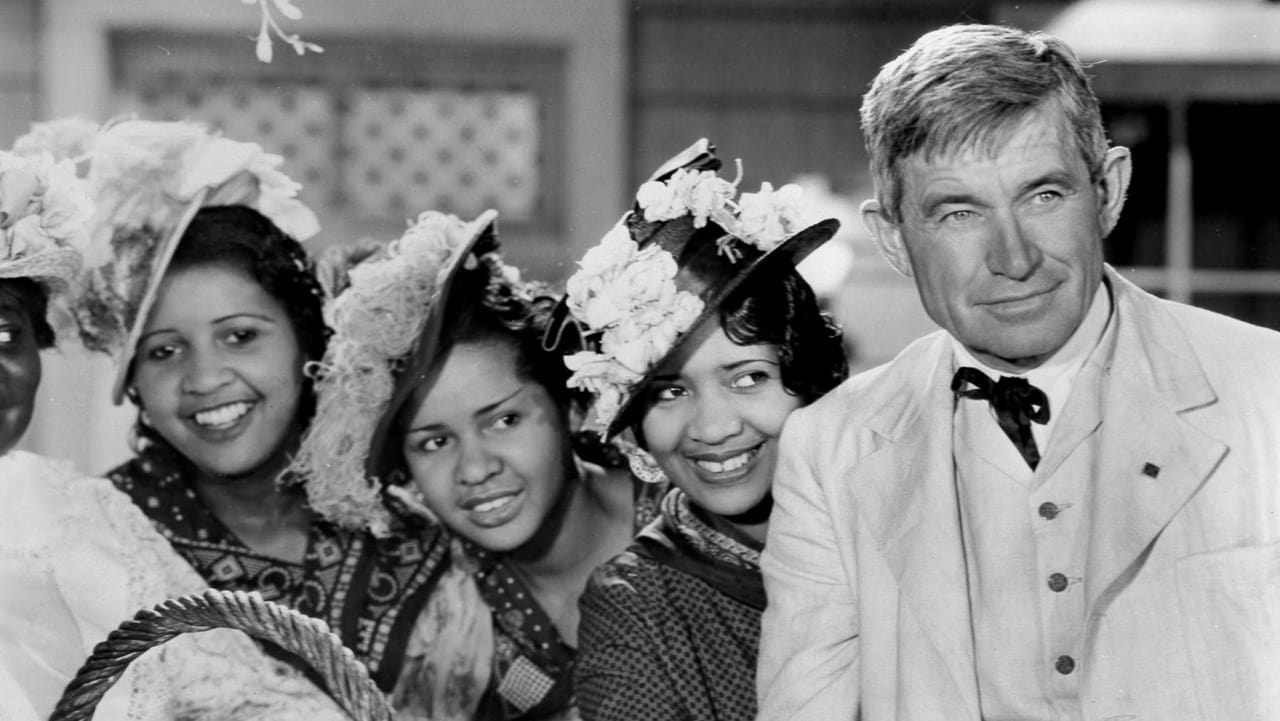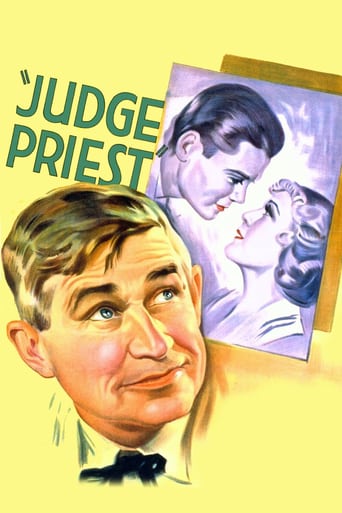

Really Surprised!
... View MoreOne of the best films i have seen
... View MoreThe performances transcend the film's tropes, grounding it in characters that feel more complete than this subgenre often produces.
... View MoreIf you're interested in the topic at hand, you should just watch it and judge yourself because the reviews have gone very biased by people that didn't even watch it and just hate (or love) the creator. I liked it, it was well written, narrated, and directed and it was about a topic that interests me.
... View MoreIt is a charming movie and Will Rogers is wonderful in his role as Judge Priest, but I noticed the young girl, Ellie May Gillespie played by Anita Louise, was never said to have parents who were married. According to the plot, her biological father was proved to be a Confederate hero thus making her acceptable for the judges' nephew to marry. Where is the logic in that? She was still a bastard and the boy's aunt was right. The aunt, as you might expect, was made a mockery of. It puts me in mind of Gone With the Wind. In it, Scarlett O'Hara was hard-hearted and calculating. Rhett Butler loved her but then became disgusted with her evil ways and the fact she loved another man, a married man. But Rhett's "friend", a prostitute, had a heart of gold. She was lifted up in this 1939 Academy Award Winner. Yes, here again we see movies even this far back were trying to change the Christian values of Americans and others. They were quite successful, unfortunately.
... View MoreThere's quite a lot to recommend this one, the John Ford touches mainly. The way the scenes are arranged, the attention to detail are his trademarks. His direction is tight, focused, the actors deliver their lines in a believable, realistic manner. Nothing stagy about this. As for the actors they performed pretty much as expected. Will Rogers was his usual self, not the greatest of thespians but entertaining nonetheless. Anita Louise was simply delicious. I don't think I've ever seen her in better form and I credit Ford for extracting that performance as well as Tom Brown's who managed to keep his earnestness and wide-eyed innocence under check. Even stone-faced David Landau and bombastic Berton Churchill managed to give their stereotypical parts some originality.My ambivalence is about the overt racism here, even granting the film's time frame and the period in our history it depicts. The least of it is that two of the central characters, Hattie McDaniel and Stepin Fetchit, are listed last in the credits, after Juror No. 12, whose only contribution was hitting the spittoon during the court scenes. Frankly it was difficult to watch despite some genuine tender scenes between the Rogers character and his servants. The one that stands out has him and McDaniel singing an impromptu spiritual and that one alone is worth the price of admission. The judge's relationship with the Fetchit character is much more problematic, even granting the "Coon" persona that Fetchit employed so successfully in his career he became a millionaire. There were just too many instances of the judge ordering him about just for the sake of it. It's painful to consider how humiliating it must have been for these two talented professionals to adopt their screen personae in order to earn a living.I know I'm judging this film by 21st century standards, seventy-seven years after its release and if nothing else one might say that it exposed our country's shameful past, let the sunlight in on our deep, dark, secret. And in all fairness this is a film about southerners right after they had lost the Civil War. One can't really expect them to feel and express any remorse. People don't work that way. So from that angle I have no qualms. If anything I suspect the presentation of that society was probably mostly accurate. But I wonder at the motivations of the society that felt the need to make a film such as this, about a society that existed seventy years prior. And given Ford's sympathetic, realistic, treatment of American Indians in his later Westerns I wonder if he wasn't making just that point.
... View MoreThe movie is not only about the Confederacy, but seems to have been made during the Confederacy. It not only looks like an antique, but also plays like one. From the snail-like pacing to the exaggerated acting to the crude racial stereotypes, it points to a long gone era of film-making and, in the process, shows why that era is long gone. Frankly, I tuned in because I'd never seen humorist Will Rogers in a movie, but I had enjoyed his trenchant iconoclasm, so I guess I had expectations. Now I think he should have stuck to rope twirling and skewering politicians because his Judge Priest is so unrelentingly folksy as to rival the slow-talking Fetchit in knee-deep stereotype. Director Ford was always more comfortable directing caricature than catching nuance, though he could do the latter on occasion. So, it's no surprise that he fairly wallows in the opportunities proffered here. Then too, this romanticized view of the Old South, circa 1890, must have appealed to a director who specialized in romanticizing the past, especially in the so-called winning-of-the-West. In fact, Ford was so enamored with the whitewashed material here, he made it again twenty years later under the title The Sun Shines Bright. In my view, once was more than enough.
... View MoreThis is warm movie with plenty of sympathetic characters. And plenty of nasty ones. A young love is threatened by a class-conscious mother, while the uncle is well, he's Will Rogers. (The character's name is the title, Judge Billy Priest, but I suspect he's the "Will Rogers" character.) As with anything cast in the deep south in the 1890s, there are some moments and characters with which you might find yourself uncomfortable. I was taken aback by "Jeff Poindexter," portrayed by then-popular black actor Stepin Fetchit. (Fetchit has an awful, partisan political bio here at IMDb the man deserves much better -- but he is an interesting story.) He seemed to me to be a set of overblown stereotypes, but the Judge befriends him and my wife was simply taken with him.There's a lot to like about this film, although it does drag in places. (I was surprised when the lawn party ends.) I had to smile, though, when the judge got to play lawyer, called on witness, and the universe stood still to the strains of "Dixie."
... View More